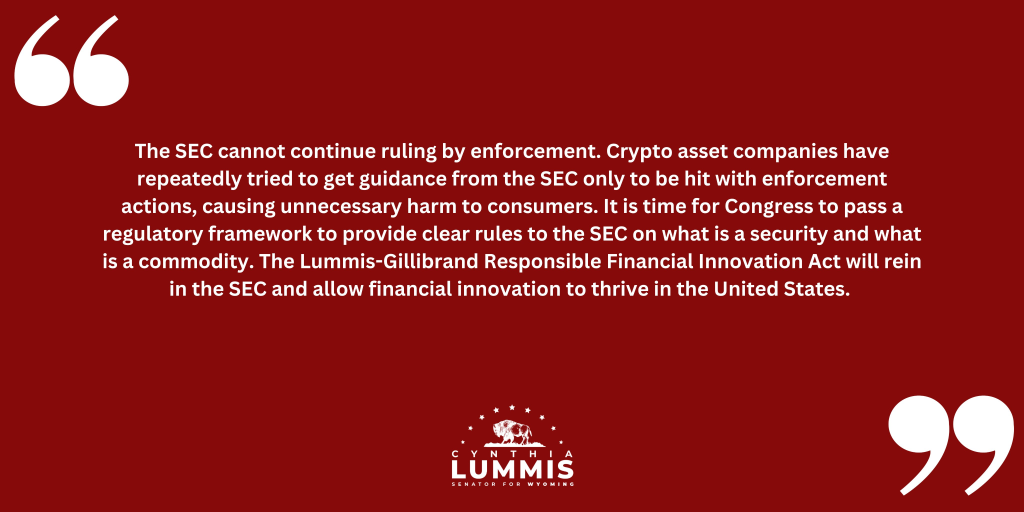In a significant development within the cryptocurrency regulatory landscape, the U.S. Securities and Exchange Commission (SEC) has taken action against the crypto exchange Kraken. The charges allege that Kraken has been operating as an unregistered securities exchange, broker, and dealer, raising serious compliance issues.
The SEC’s complaint details that Kraken allegedly commingled more than $33 billion of customer assets and over $5 billion of customer cash with its own assets, posing a “significant risk of loss” to customers and leading to material misstatements in Kraken’s financial records for 2020 and 2021.
Regulatory Clarity in Crypto: The Call for Congressional Action
This move by the SEC is seen by some industry participants as another attempt to assert its regulatory stance on the crypto industry, akin to previous allegations made against Coinbase. The SEC is sharpening its focus on the commingling of funds, drawing attention in the wake of the FTX collapse, to underscore the necessity for the investor protections that licensed brokers, exchanges, and clearinghouses provide.
Moreover, the SEC’s action against Kraken includes an assertion that the exchange supported tokens previously alleged by the SEC to be securities, although no court has made such a determination. Critics argue that it is the judicial system, not the regulatory body, that has the final say on whether a token qualifies as a security.
The allegations extend to Kraken’s operations, highlighting potential conflicts of interest, such as its Over-The-Counter (OTC) desk activities where Kraken acted as the market maker, and its proprietary trading desk operations.
Statement from Senator Lummis

The SEC’s Enforcement-Led Approach
The U.S. Securities and Exchange Commission‘s enforcement-centric approach to regulating the crypto industry has been a point of contention. By charging Kraken for operating as an unregistered securities exchange, broker, and dealer, the SEC has reinforced its pattern of regulating through enforcement actions, which some critics say causes unnecessary harm to consumers and stifles innovation.
Seeking a Legislative Framework
The need for clear congressional guidance has been emphasized by industry advocates, who argue that it is crucial for Congress to define what constitutes a security versus a commodity. The Lummis-Gillibrand Responsible Financial Innovation Act is seen as a potential solution to provide this clarity, aiming to foster an environment where financial innovation can thrive in the United States without the overhang of regulatory ambiguity.
The Kraken Case: A Microcosm of a Larger Issue
As the SEC levies allegations against Kraken, similar to those previously brought against Coinbase, the case could become a litmus test for the industry. Legal experts and the crypto community alike are watching closely, with advocates like John E. Deaton preparing to ensure that the voices of digital asset holders are heard, separate from the SEC’s protective stance. This case may very well shape the future of how cryptocurrencies are regulated and perceived in the legal domain.
Legal experts and industry observers are closely watching to see if this case, being brought in the 9th Circuit, might result in “bad” crypto law if the SEC manages to secure a favorable judgment based on these allegations. This situation echoes the broader call for clear regulatory frameworks and the distinction between securities and commodities in the digital asset space.
This ongoing regulatory scrutiny has galvanized the crypto community, with advocates like John E. Deaton preparing to amplify the voices of Kraken users and challenge the SEC’s representation of digital asset holders. The outcome of this legal battle could have far-reaching implications for the future of cryptocurrency operations and the regulatory environment in the United States.
Author Profile

- Lucy Walker covers finance, health and beauty since 2014. She has been writing for various online publications.
Latest entries
- June 30, 2025NewsWireBank Savings at Risk: The Dark Side of EU’s Savings Standard
- April 25, 2025Global EconomicsWhistleblowers Unmask Schwab’s Toxic WEF Secrets
- April 9, 2025Global EconomicsTariff Tensions Drive Market Volatility
- March 18, 2025Global EconomicsRed in Name Only: Labour’s War on the UK Working Class




